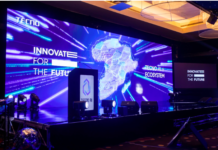Director of Strategy at IMANI Africa, Selorm Branttie has asserted that his outfit feels vindicated with regard to calls for the review or suspension of the Free Senior High School (FSHS) policy.
According to him, IMANI Africa foresaw the current challenges with funding of the policy, thus it is “a kind of IMANI told you so” moment.
In an interview on Joy FM’s News Night on Thursday, he stressed that the policy was a huge burden right from the beginning.
“As far back as 10 years ago when this policy was mooted during the campaign of the NPP in the 2012 election, IMANI sounded a very big warning about the fact that this was a kind of a trojan horse that will bring complications in the future,” he said.
He added that, “unfortunately the reality has caught up with us and we now have to grapple with very hard decisions because we have nurtured this kind of freebie mentality to be pervasive in the psyche of the modern Ghanaian parent.”
His comment comes in the wake of Akim Swedru MP, Kennedy Nyarko Osei suggesting that government suspends its flagship Free SHS policy and four other social intervention programmes.
The MP proposed these measures in the wake of growing public concern over the raging economic challenges.
According to Mr. Osei, the government could recoup about GH₵5b to GH₵6b if it goes ahead to suspend the flagship Free SHS policy and other such social interventions.
He suggested that government could invest the money that would accrue into youth employment and the manufacturing industry for the next three years.
Mr. Branttie, in response, confirmed that an average of $400, $500 million has been spent annually on the Free SHS policy.
According to him, the problem associated with the policy is that “the populist approach was followed without looking very pragmatically about what could have been done” to improve on the policy.
He said because of the rush decision taken “we are now bearing the repercussion of some of this hasty action.”
He suggested that for the policy to work effectively, it ought to be revised.
“The mistake we have made as a country is that we have failed to realise that our secondary school system is largely dependent onboarding facilities which makes it different from the kind of model that you have in other countries, where most secondary or level education is done through day schools and therefore funding or subsidising the education in such day schools are easier than running such a platform through boarding schools without doing any kind of means-testing and then expecting that we would have resources that are infinite pulled from the skies to be able to run these things in perpetuity,” he pointed out.
Source: TheBBCghana.Com


















